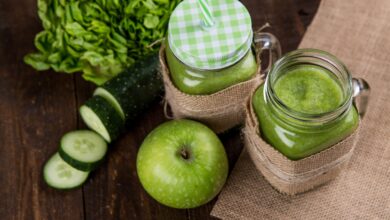Food Guides

The next generation of food guides
The food guides are constantly being renewed, and there is of course always room for improvement. Many experts believe, for example, that the recommended portions are often too high or should be more specific depending on the characteristics of the people (male or female, active or sedentary, etc.). Others feel that too much emphasis is placed on meat and dairy products. In light of various studies 6 , it is also suggested, particularly in the fight against obesity, to explain which fats should be avoided and favored, rather than simply advocating a reduction in their total consumption.
Some research groups have recently presented new recommendations that may influence future updates to the guides. We present some of their findings.
Food guides – On the research side: Willett’s pyramid
The team of Dr. Walter Willett, director of the Department of Nutrition at Harvard University School of Public Health, published their own version of the American food pyramid in 2001 in the book Eat, Drink, and Be Healthy . It was updated and republished in 2005. This pyramid is based on nutrition research conducted over the past 20 years and multiple epidemiological studies, including one involving 121,700 women.
The purpose of the pyramid proposed by Dr. Willett was to correct certain shortcomings in the Canadian and American guides to which she criticized, among other things, a lack of distinction between types of food within the same group. The most recent version of Canada’s Food Guide has taken up, in part, certain principles of the Willett pyramid. Others have also been applied in the new American pyramid, but Dr. Willett considers that the latter still has significant deficiencies 7 . Here are the main recommendations of the Willett pyramid.
The foundations of the pyramid: exercise and weight control. It is the base of the pyramid. Young and old, young or old, we all need to exercise for at least 30 minutes a day. This measure, associated with a healthy diet, is not intended to lose weight, but rather to control it, among other things by balancing energy intake and expenditure. If you are overweight, you must take the necessary measures to remedy it.
Look for good fats . Harvard researchers say, and many studies confirm it 8-11 , it’s not so much the amount of fat that affects cardiovascular health, but rather the types of fat consumed. Monounsaturated and polyunsaturated fats , found in nuts, avocados, fish, olives, and most vegetable oils, have been observed to play an important role in preventing coronary heart disease . Similarly, the results of a meta-analysis 9revealed that the substitution of a portion of carbohydrates by a portion of “good fat” of equivalent energy value is associated with a 30% reduction in coronary disorders, while the substitution of a “bad fat” (trans fat, oil vegetable fat, butter, animal fat) with a vegetable “good fat” is associated with a 45% reduction in risk. (See our Trans fat dossier: not in my meat pie!)
Cereals…whole! Whole grains should be part of most meals while refined ones (rice and white bread, for example) should be eaten only exceptionally. The fact that they turn into sugars very quickly during digestion associates them more with treats than with healthy foods.
Better sources of protein. Less red meat and more legumes, nuts, fish, poultry and eggs.
Lots of vegetables and fruits, but less potatoes . There are no restrictions on the amount of vegetables to eat. They are considered beneficial for preventing a host of diseases, including cancer . On the other hand, potatoes would have a harmful effect on blood sugar and insulin levels.
Fewer dairy products, especially those high in fat. Calcium should instead come from green vegetables and tofu, for example, or even supplements, which are a cheaper source than dairy.
Alcohol, in moderation. After analyzing the many studies on the subject, Dr. Willett’s team concludes that one drink per day would have a favorable effect on health, particularly in the face of cardiovascular disease. But overconsumption can have devastating effects. So someone who already drinks moderately shouldn’t abstain, but someone who doesn’t drink shouldn’t start.
A multivitamin per day, in prevention. This is one of the most controversial recommendations of the new pyramid. According to Willett, with today’s pace of life, even the most conscious people about their diet are at risk of having certain deficiencies. For pennies a day, a multivitamin would be a good insurance policy.








